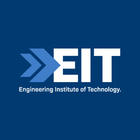Professional Certificate of Competency in Structural Design for Non-Structural Engineers
- Home
- Courses
- Engineering Institute of Technology (EIT)
- Professional Certificate of Competency in Structural Design for Non-Structural Engineers
Professional Certificate of Competency in Structural Design for Non-Structural Engineers
This professional development course is designed for engineers and technicians who need to understand the role of a structural engineer. Course Details Construction is the largest industry in the world. Within a civil engineering context, construction may refer to bridges, dams, earthworks, foundations, offshore structures, pipelines, power stations, railways, retaining…
Categories
COURSE DESCRIPTION
This professional development course is designed for engineers and technicians who need to understand the role of a structural engineer.
Course Details
Construction is the largest industry in the world. Within a civil engineering context, construction may refer to bridges, dams, earthworks, foundations, offshore structures, pipelines, power stations, railways, retaining structures, roads, tunnels, waterways, and water or wastewater infrastructures.
Anything constructed needs to be designed first. Structural engineering deals with the analysis and design aspects required to ensure a safe, functional, and economical end product. During the design process, the designer may regularly interact with specialists such as architects and operational managers. Once the design is finalized, the implementation requires people to handle aspects such as statutory approvals, planning, quality assurance, and material procurement.
The entire exercise can be undertaken in a highly-coordinated way if everyone involves understands the terminology or ‘project language.’ To fully understand this language, it is necessary to appreciate the principles of structural analysis and design.
Participants in this course will gain a basic knowledge of structural engineering that includes the principles of analysis of structures and their application, the behavior of materials under loading, the selection of construction materials, and the design fundamentals for Reinforced Cement Concrete (RCC) and steel structures. The emphasis will be on the determination of the nature and quantum of stress developed under loads, and the way structures offer resistance to it. As the most widely used construction materials, RCC and steel will be covered in detail, though masonry and timber are also introduced.
Time Commitment & Duration
You are expected to spend approximately 5-8 hours per week learning the course content. This includes attending fortnightly webinars that run for about 90 minutes to facilitate class discussion and allow you to ask questions. This professional development program is delivered online and has been designed to fit around full-time work. It will take three months to complete.
REQUIREMENTS
For entry into most EIT degree programs, you need to have completed a minimum level of education similar to successful completion of Australian Year 12 with good grades.
EDUCATIONAL INSTITUTION
The Engineering Institute of Technology (EIT) delivers industry driven programs to equip its students with the skills required in the real industrial world. Its study options are available across Perth and Melbourne; and include classroom sessions, practical lab exercises, assessments, class discussions and self-study. Additionally, students enjoy access to industry experts based around the globe through live and interactive online presentations. All EIT programs provide access to remote laboratories and cutting-edge simulation software. Hands-on laboratory practicals are an essential component of EIT’s programs to ensure students put theory into practice. These hands-on workshops cover the major discipline-specific applied skills required for competency in engineering practice.
Do you want to Apply to:
Professional Certificate of Competency in Structural Design for Non-Structural Engineers
Add Your Heading Text Here
Please, login or Register to Apply!
Do you need extra info about:
Professional Certificate of Competency in Structural Design for Non-Structural Engineers?
The Engineering Institute of Technology (EIT) delivers industry driven programs to equip its students with the skills required in the real industrial world. Its study options are available across Perth and Melbourne; and include classroom sessions, practical lab exercises, assessments, class discussions and self-study. Additionally, students enjoy access to industry experts based around the globe through live and interactive online presentations. All EIT programs provide access to remote laboratories and cutting-edge simulation software. Hands-on laboratory practicals are an essential component of EIT’s programs to ensure students put theory into practice. These hands-on workshops cover the major discipline-specific applied skills required for competency in engineering practice.




